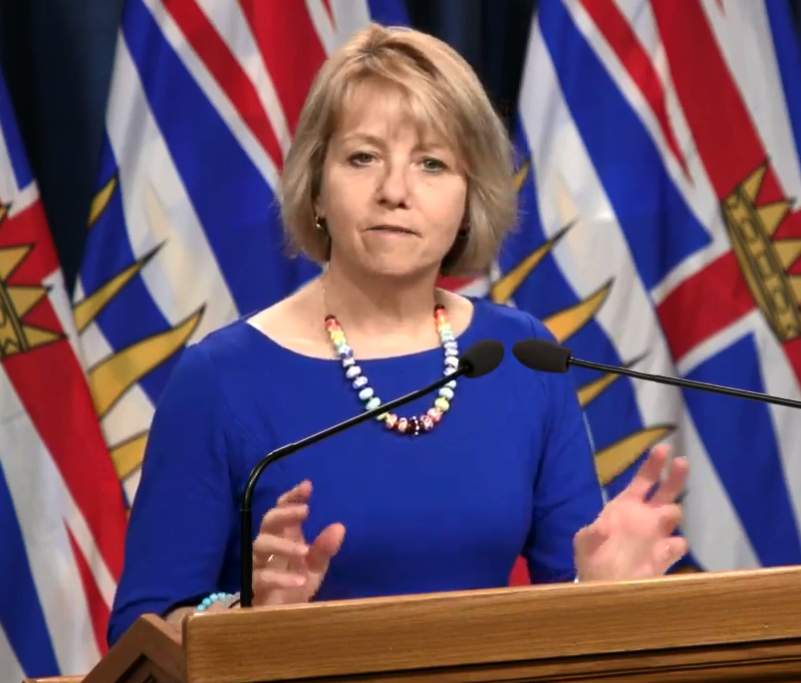Confirmed COVID-19 cases in B.C. are mounting, as 52 new cases have been reported over two days, bringing the total in B.C. up to 1,699, with 153 in the Interior Health region.
Monday’s briefing has split the cases into two reporting periods: from Saturday to Sunday, and from Sunday to Monday. 29 cases have been confirmed in the first period, and 23 in the second.
Dr. Bonnie Henry, Provincial Health Officer, said in the daily briefing on Monday that 1,039 people have recovered from the virus, meaning there are currently 660 active cases in the province.
According to Dr. Henry, five more deaths have occurred over the last two days, bringing B.C.’s total deaths to 86.
Henry also enacted an order aimed at those coming back from the Curl Lake project in Alberta after several people have tested positive for COVID-19 after their return. Any B.C resident that has been in the Curl Lake Project since March 15th is required to self-isolate for 14 days after their return.
“We know from our colleagues in Alberta that there is an ongoing outbreak investigation is going on in that community, and there is a concern with people that have travelled to other provinces,” said Henry. “Both Interior Health and Northern Health have had individuals that have come back and tested positive from the Curl Lake project. They are doing contact tracing and have identified all of the close contacts of the individuals that we know of at this point.”
Henry added that more cases from travellers are expected, as some people that travel for work are considered essential workers.
Testing procedures have been updated once more to try to make sure that all B.C. residents that need to be tested can have access to it.
“We’re now using testing to quickly identify and address any new community cases and outbreaks,” said Henry. “We want to avoid another spike in community cases. That’s why we are changing the strategy again to open it up and make sure we continue to find everybody who needs to be isolated and where we need to do contact tracing.”
Dr. Henry said anyone showing symptoms of COVID-19 is encouraged to get tested through a family physician, a nurse practitioner or a community collection centre.
According to the Canadian Federal Government, contact tracing is a means of identifying people that may have been in contact with the infected individual and notifying them of the infection.
Henry said that restrictions and measures may begin to ease in the middle of May if things follow the current trajectory.
“We’ve been doing a lot of thinking about what this will look like and how we can do it in a measured way that gives up that bit of space and finding a new normal that gets us through the next few months versus having too many people come together and having an exponential spread of this virus,” said Henry. “Our new normal is going to be a modification of the things that we have had in place for the last few months.”
Henry added that the process will likely involve some trial and error to find a place where people can balance safe practices to avoid infection and maintaining contact with one another.
*** Story by Ryley McCormack ***





